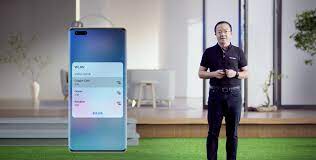Huawei says it has no plans to use HarmonyOS in non-Chinese models

Islamabad: Huawei has stated that there are currently no plans to use HarmonyOS on global mobile phones. Non-Chinese users can continue to use Android apps with confidence through the Huawei Android skin, EMUI.
In the future, Huawei will continue to increase its support for developers around the world. It will provide better development environments and tools and bring better experiences. Huawei said that its goal is to achieve greater business value.
Many brands have previously reached cooperation with Huawei to launch HarmonyOS native application development, including Meituan, Qunar, etc. Data shows that as of August this year, the number of Harmony Ecosystem devices exceeded 700 million. The data also shows that 2.2 million developers have invested in the development of the Harmony Ecosystem. As of October 30, the number of devices upgraded to HarmonyOS 4 exceeded 100 million.

Despite its efforts to develop and improve HarmonyOS, Huawei has stated that its plans to use HarmonyOS in non-Chinese models are not currently being utilized. This means that Huawei’s smartphones outside of China still use Android, while its Chinese counterparts use HarmonyOS.
Previously, there were reports that HarmonyOS will no longer be compatible with Android next year. Huawei has not yet responded to this. However, according to the Securities Times, industry insiders said Huawei does have internal plans to launch a version of HarmonyOS that is not compatible with Android next year. However, no relevant notice has been issued internally. So it is not clear when it will be launched. According to The Paper, a Huawei official said the launch time is still uncertain. The report also claims that in the future, HarmonyOS will not have any link with Android.
Huawei, the Chinese tech giant, has been working on its mobile operating system, HarmonyOS, since 2012. In 2019, the company launched HarmonyOS as a replacement for Android, with the aim of regaining market share in the smartphone industry.
HarmonyOS is a distributed operating system developed by Huawei for various types of hardware, including smartphones, tablets, TVs, and smartwatches. It is designed to provide a unified software experience across multiple consumer electronics categories, similar to Apple’s ecosystem. The operating system has gone through several versions, with the latest being HarmonyOS 4, which was launched in August 2023.
Huawei’s smartphone business has been struggling overseas due to the lack of 5G support and the absence of key apps like Google. However, the company has been working on improving its HarmonyOS system, with an eye to regaining market share in the smartphone industry. The launch of HarmonyOS 4 highlights Huawei’s ambition to strengthen its smartphone business.
In addition to smartphones, Huawei has been working on expanding HarmonyOS to other devices, such as wearables, TVs, and in-car entertainment systems. The company has also launched Petal Chuxing, a ride-hailing app running on the new version of the operating system.
Huawei has confirmed that it has no plans to use HarmonyOS in non-Chinese models. However, if Huawei decides to implement HarmonyOS in non-Chinese models, it will face a couple of issues. The Chinese brand will have to develop enough apps or convince developers to do it. It will also have to tackle the lock-in and trade ban issues.
One of the biggest challenges Huawei faces in implementing HarmonyOS in non-Chinese models is the app shortage. HarmonyOS is not compatible with Android, and therefore, the associated apps would need to be altered. With over 2 million apps on Google’s Play Store, it would require a lot of patience and deep pockets to convince app developers to port their apps from Android to HarmonyOS and keep them updated. This challenge is not unique to Huawei, as other companies like Microsoft and Samsung have also failed to establish a third mobile operating system.
Another challenge Huawei faces is lock-in. Huawei’s new operating system can easily work across multiple device types, from TVs to smartphones. However, if Huawei decides to implement HarmonyOS in non-Chinese models, it may face resistance from users who are already locked into other ecosystems like iOS or Android. This challenge is not unique to Huawei, as other companies like Microsoft and Samsung have also faced similar challenges in the past.





